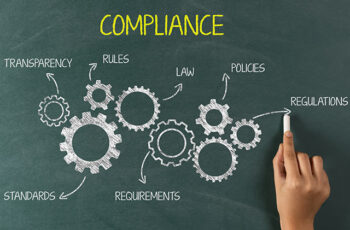How To Properly Tackle Complaints In Your Workplace To Prevent Or Minimize Damages
There are many ways to properly tackle complaints in your workplace to prevent or minimize damages. As an entrepreneur, the last thing you need is employee lawsuits.
By understanding the best way to handle these complaints, you have successfully reduced the potential of such complaints to harm your business or jeopardize the productivity of other employees and probably, even yourself as the owner of the business.
Related: 4 ways of making new employees feel comfortable in their new workplace
There are no stopping complaints in your workplace so long as you have human beings working for you.
You need to come to terms with the possibility of this challenge and have an exit strategy to always help you come out of the negative potentials of these complaints.
By conducting a proper workplace investigation into any complaint, you mitigate the effect of potential lawsuits that would have had a catastrophic impact on your business.
You really have to pay attention when an employee reports a case of wrongdoing, gross misconduct and /or ethical lapses by co-workers in the workplace.
If you fail to conduct a proper investigation of workers’ complaints, you risk your business’s finance and reputation all at once.
Related: How to create a productive workplace in Nigeria
This shows that conducting a proper workplace investigation is not something that you should joke about in any way if you wish to have your business functioning optimally.
Ways To Properly Tackle Complaints In Your Workplace To Prevent Or Minimize Damages

-
Pay attention to complaints and train your employees to do the same
As an employer, never disregard a complaint by an employee no matter how trivial you think it is in the first place.
Always give your employees a sense of belonging and believe in the ability of the company to listen and tackle their complaints and challenges.
You must train your employees on the rules and regulations of the workplace, the punishment to defaulters, and how they can help in maintaining a conducive environment in the place of work.
If you fail to pay attention to the complaints of your workers, they can follow it up through legal means and it might cost you much more than you would have spent in investigating the complaint in the first place.
-
Never you jump to conclusions without proper information
An investigation that is done without the availability of all needed information is worse than one not done at all.
This is because you can pass judgment on the wrong employee or worst of all compensate a defaulter.
Make sure to have all your facts right before jumping to conclusions prematurely.
As an employer, you must complete investigations into a complaint with minimal workplace disruption.
This is really a wonderful way to tackle complaints in your workplace to prevent or minimize damages to your business and reputation.
-
Always protect the integrity of an evidence
During the course of an investigation in your workplace, never compromise the integrity of evidence.
You must secure sensitive information until you have concluded the investigation and reached your conclusion.
There is no negotiating this important aspect of workplace investigation to tackle complaints.
-
Tackle each case separately

There is no law that a particular pattern must be followed when carrying out an investigation in your workplace.
The peculiarity of each given case must require a special way to tackle it. You can involve only an individual, a group or even a third party depending on the complex nature of the investigation.
To tackle complaints in your workplace to prevent or minimize damages, you must be able to be flexible in your methods depending on the nature of such investigation.
-
Always carry the complainant along in the process
To be able to properly tackle complaints in your workplace to prevent or minimize damages, you must not fail to always carry the party that lodged the complaint along.
It is only by communicating with the complainant that you hope to douse whatever it is that may spring up from such a complaint.
You must never mishandle an investigation by not communicating with the complainant.

